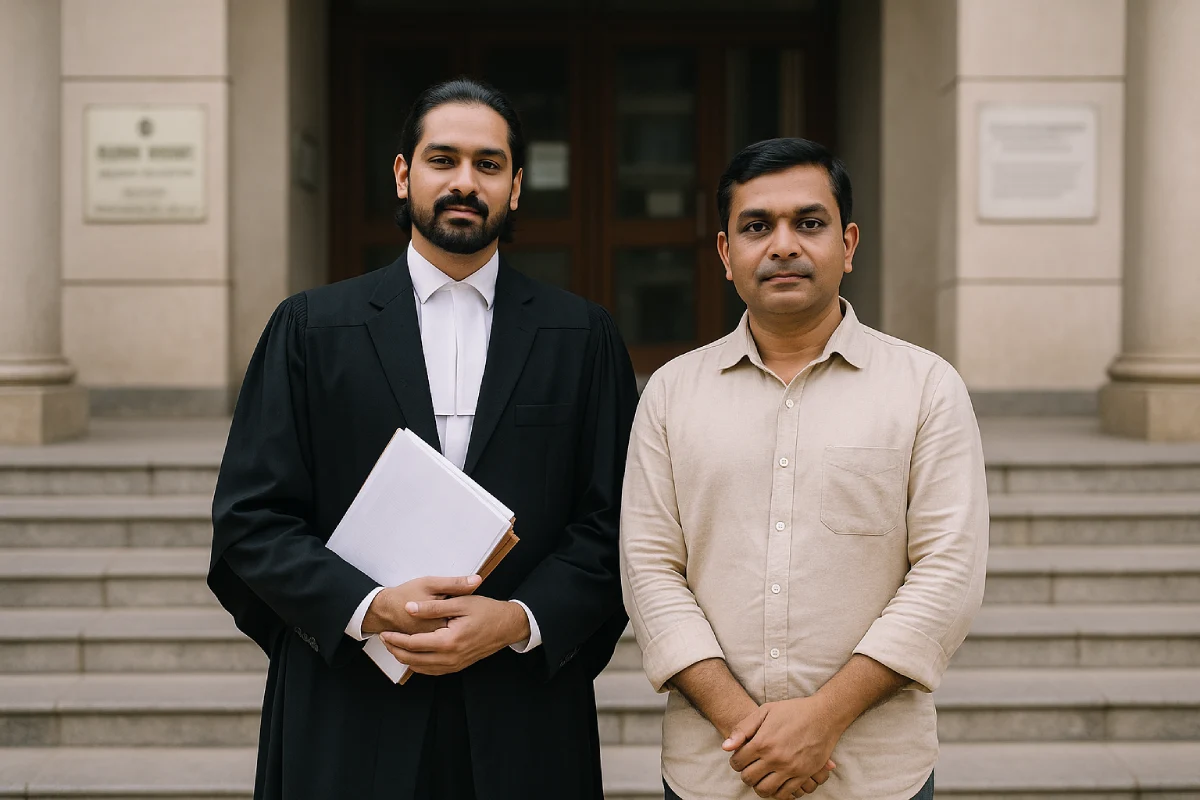What Is Bail? Powerful Guide to Types, Process & Costs
What is Bail is the legal release of an arrested person from custody on conditions, usually with a bond, so they can live outside jail while the case continues. Bail does not mean the case is over. It simply ensures the person appears in court and follows the law. Courts use bail to balance liberty and justice.
If you were just detained, first learn your rights when arrested.
Why bail exists
Bail exists to balance personal liberty with the needs of justice. It limits needless pre‑trial jail while ensuring cooperation with the investigation and the person’s presence in court.
- Presumption of innocence before trial.
- Avoid needless pre‑trial jail.
- Let the accused keep work, family, and health support.
- Ensure court attendance with a bond and conditions.
What is Bail in Indian law (in simple terms)
Under the Code of Criminal Procedure (CrPC), what is Bail means temporary freedom with rules. You promise to return to court and not misuse liberty. If you break conditions, the court can cancel bail and forfeit the bond.
Types of Bail in India

Knowing the Types of bail helps you choose the right remedy.
1) Regular Bail (CrPC 437/439)
- For someone already arrested and in custody.
- Apply to the Magistrate; for serious offences, move the Sessions Court/High Court.
- The court may set conditions like travel limits, sureties, or weekly attendance.
2) Anticipatory Bail (CrPC 438)
- A pre‑arrest safeguard when you fear arrest on a false or exaggerated complaint.
- If granted, police cannot arrest you as long as you comply with the conditions.
- We have a plain‑English explainer here: bail and anticipatory bail basics.
3) Interim Bail
- Short‑term relief when the main bail hearing needs time.
- The court may extend or modify it until final orders.
4) Default/Statutory Bail (CrPC 167(2))
- A right that activates when police don’t file the charge‑sheet in time (usually 60 or 90 days, depending on the offence).
- You must apply before the charge sheet is filed and be ready to furnish the bond.
Bailable vs Non‑Bailable Offences
- Bailable offences: Bail is a right; the police or the Magistrate can release you on a bond.
- Non‑bailable offences: Court decides based on facts. Serious crimes fall here.
- Special laws like NDPS, PMLA, and UAPA often add stricter tests. If your case touches narcotics, see our NDPS bail guide.
How to get bail: step‑by‑step

If you need a clear map of how to get bail, follow these stages. (If the offence just happened, also see our step‑by‑step FIR guide.)
- Know the allegation
Obtain the FIR number, sections, and whether it’s bailable or non‑bailable. - Collect documents
ID proofs, address proofs, medical papers, work letters, and any evidence that shows roots in the community. - Choose the right application
- Arrested already → Regular Bail.
- Fear of arrest → Anticipatory Bail.
- Hearing delayed → Interim Bail.
- Police missed statutory time → Default Bail.
- File the petition
Your lawyer files it at the proper court with an affidavit and vakalatnama. - Notice and hearing
The court hears the prosecutor and the defence. Be ready with facts, medical issues, family ties, and surety details. - Order and compliance
If granted, complete the bail bond process: execute the bond, produce sureties, deposit a passport if asked, and sign conditions. - Follow up
Attend each date, cooperate with the investigation, and never contact witnesses. Violations risk cancellation.
This is the practical path for how to get bail quickly and cleanly.
Bail bond process and costs
Understanding the bail bond process reduces stress at the court counter.

A) Documents & Verification
- Bail order copy, ID/address proofs of the accused and sureties, photographs, and PAN/Aadhaar as required.
- Court staff verify surety identity and financial capacity (often via salary slips, property papers, or local references). Some courts accept personal bonds when sureties are hard to arrange.
B) Executing the bond
- Fill the bond form with case details and bond amount.
- Sureties sign. Accused signs to accept conditions.
- If the court directs, deposit cash/security. Keep the receipt safe.
C) Typical costs (approximate and vary by city/court)
- Lawyer’s professional fee: depends on the offence gravity and court tier.
- Stamp paper/notary/attestation: small administrative costs.
- Travel/miscellaneous: photocopies, affidavits, and certified copies.
- Bond amount: not a fee; it is security. Courts may forfeit it if you violate the terms or abscond.
Clear paperwork makes the bail bond process smooth and controls costs. Ask your lawyer about local practices so you don’t overpay.
What factors do courts consider before granting bail
Judges weigh risk against liberty. Common factors include:
- Gravity and nature of the offence; statutory bars in special laws.
- Prima facie evidence shown so far.
- Criminal record, if any.
- Flight risk and strength of local tie: job, family, home.
- Chances of witness intimidation or tampering with evidence.
- Health, age, and humanitarian concerns.
- Cooperation with the investigation and whether custody is still needed.
- Delay in trial or prolonged pre‑trial detention.
These are the lenses courts use when deciding what is Bail in action, not just in theory.
Typical bail conditions

Courts add simple rules to protect the case and ensure you attend every hearing. Expect conditions like these on most bail orders:
- Don’t leave the city/state without permission.
- Appear on every date; sign at a police station if asked.
- Don’t contact the complainant or witnesses.
- Surrender your passport where relevant.
- Share phone, address, and live location changes promptly.
Breaking conditions lets the court cancel bail and seize the bond.
Cancellation of bail
Bail can be cancelled when a person threatens witnesses, commits a fresh offence, ignores court dates, or misuses liberty. Police, prosecution, or the complainant can move the court. High Courts have wide powers under Sections 439(2) and 482 CrPC.
High Court & Supreme Court guidance (plain English)
- Arnesh Kumar: Don’t arrest for every allegation; use summons where possible.
- Satender Antil: Encourage bail over unnecessary custody for many offences.
- Sushila Aggarwal: Anticipatory bail need not be time‑limited; courts can tailor safeguards.
- Hussainara Khatoon: Speedy trial is a fundamental right; under‑trial detention must be reduced.
These principles shape how courts look at what is Bail, Types of Bail, and liberty.
India vs the US: How Bail Systems Differ
- India: No commercial bail bondsmen. Courts rely on personal bonds, sureties, and conditions under the CrPC.
- United States: Cash bail is common in many states, and private bondsmen operate. The Eighth Amendment prohibits excessive bail, and many jurisdictions now reform cash bail to reduce pre‑trial jail.
The spirit in both systems is the same: ensure appearance, protect society, and respect liberty.
FAQs
What is the definition of bail?
What does Bail mean? Conditional release from custody while a criminal case continues. You promise to attend court and obey conditions, backed by a bond or surety.
What are the 4 types of bail?
The main Types of Bails are Regular Bail, Anticipatory Bail, Interim Bail, and Default/Statutory Bail.
What is bail class 8?
For a Class‑8 student: What is Bail is a promise to the court “I’ll follow rules and come back on the next date” so you can go home instead of staying in jail during the case.
Is the bail amount refundable?
The bond is security, not a fee. If you follow the conditions and the case ends, the court usually releases the security/surety. If you abscond or break the rules, the court can forfeit it.
What exactly does bail secure in a criminal case?
Bail secures your appearance in court and your good conduct during the investigation and trial. It is not a declaration of innocence or guilt.
How do bail rules differ between the US and India?
India follows the CrPC and uses personal bonds and sureties; no private bondsmen. Many US states use cash bail and commercial bondsmen, though reforms are ongoing.
What factors do courts weigh when setting bail amounts?
Offence gravity, evidence strength, prior record, flight risk, local ties, health, cooperation, and special law restrictions.
When is anticipatory bail available to me in India?
When you reasonably fear arrest for a non‑bailable offence. Apply under Section 438 CrPC before arrest; the court may grant conditions to prevent custody.
What happens to bail money if the accused skips court?
The court can forfeit the bond, issue a warrant, and start recovery from sureties. It may also begin proceedings to attach property.
Still anxious about what Bail is? We can help.
If you or a loved one faces arrest risk, time matters. You worry about the night in lock‑up, the bail bond process and costs. You may not have sureties ready, or you fear strict conditions. Our team at ManAt Legal prepares the right application fast, lines up documents, and argues the factors that move courts. Talk to our Criminal Lawyers in Bangalore for strategic bail planning and urgent representation.







